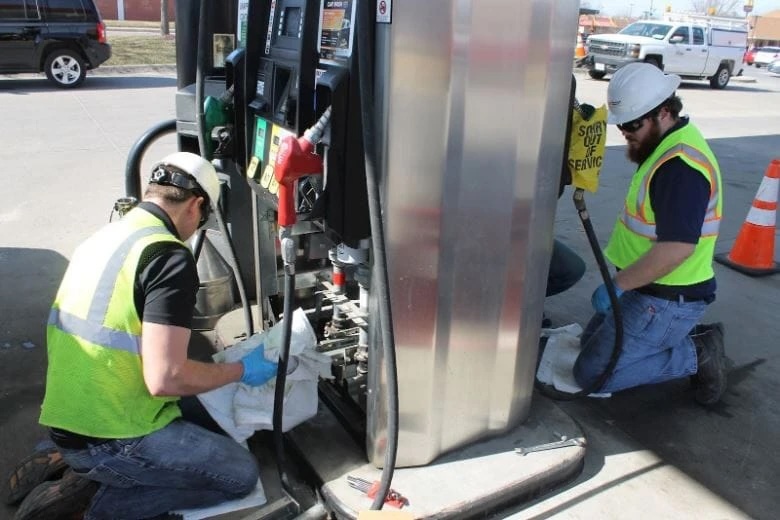Why Ongoing Support Matters for Every Fueling Site
Fuel stations operate under constant pressure. Pumps run all day, customers move through the site nonstop, and essential equipment must handle continuous fuel transfer without failure. Because of this, dependable gas station maintenance companies are essential. Their work prevents disruptions, reduces safety risks, and keeps stations performing the way they were designed to.
A fuel station isn’t just a convenience stop. It’s a complex system of tanks, pumps, sensors, electrical components, and safety infrastructure. Each part must be inspected, serviced, and repaired over time. Without structured maintenance, even small issues can turn into expensive breakdowns that stop operations and put customers at risk. Maintenance teams ensure that daily operations run smoothly and that the station stays compliant with regulatory standards.
How Maintenance Companies Keep Fuel Systems Safe
Fuel systems require constant attention. Pumps, hoses, valves, and piping components must withstand temperature changes, pressure variations, and constant wear. Maintenance teams check these components frequently to ensure that the entire fuel transfer system works correctly. Their inspections can identify early signs of leaks, corrosion, or pressure inconsistencies.
Proper servicing of pumps, filters, and nozzles also keeps fuel flowing cleanly and reliably. When any part of the fuel system becomes compromised, it affects both performance and safety. Gas station maintenance companies help owners avoid hazards by keeping the entire fueling environment stable and well-maintained.
Why Compliance Depends on Consistent Maintenance
Fuel stations face strict environmental and safety regulations. Tanks must be monitored, containment systems must be checked, and leak detection equipment must always function. Maintenance teams carry out the required testing and documentation that regulators expect. They ensure that sensors read correctly, alarms activate as they should, and containment structures remain in good condition.
If a station fails an inspection due to maintenance issues, it can face costly penalties or be forced to suspend operations until repairs are made. Maintenance companies help operators avoid these setbacks by managing compliance-related tasks throughout the year. Their consistent oversight ensures that the station stays ready for any regulatory review.
How Electrical and Safety Systems Receive Essential Care
Fuel stations rely on electrical systems designed to minimize ignition hazards. Explosion-proof fixtures, wiring, control panels, and emergency shutoff switches all need regular checks. Maintenance teams test these systems, verify grounding connections, and replace components when they begin to fail.
Lighting systems also require routine attention, especially for stations that operate late into the night. Proper illumination improves visibility, supports security cameras, and keeps customers safe. Gas station maintenance companies perform these checks to reduce electrical hazards and keep every part of the site functioning correctly.
The Importance of Cleaning and Surface Upkeep
A clean station isn’t just more appealing; it’s safer. Overflow areas, dispenser islands, and tank pads must stay free of buildup that can cause slip hazards or interfere with equipment. Fuel residue, debris, and weather exposure can wear down surfaces over time. Maintenance teams clean and restore these areas to ensure they remain safe for customers and employees.
Cleaning also includes clearing drainage channels, checking stormwater controls, and removing obstructions that could interfere with environmental systems. When these tasks are ignored, water accumulation or contamination risks can emerge, especially during heavy rain.
How Maintenance Prevents Equipment Breakdowns
Every pump, nozzle, meter, and filter plays a role in smooth fueling operations. These components undergo constant use, making preventive maintenance essential. Technicians lubricate moving parts, recalibrate measurement systems, and replace components before they fail. This structured approach prevents downtime and helps stations maintain steady revenue.
Regular servicing extends the lifespan of expensive equipment, reducing the need for premature replacements. Maintenance teams know the performance patterns of different pump and dispenser models, allowing them to identify issues early and act before they escalate.
Why Tank Monitoring Systems Need Continuous Attention
Modern fuel stations rely on automated monitoring systems that track tank levels, pressure, and leak detection. These systems must work flawlessly to ensure environmental safety and accurate inventory management. Maintenance companies test sensors, inspect wiring, and verify data accuracy.
A malfunction in tank monitoring can lead to fuel shortages, environmental exposure, or false alarms that disrupt operations. By keeping monitoring systems calibrated and operational, gas station maintenance companies ensure that operators always have accurate, dependable information about their fuel levels and storage conditions.
How Maintenance Supports Customer Experience
Customers notice when a station is well-maintained. Smooth pump performance, clear lighting, clean fueling areas, and reliable payment systems all contribute to a positive experience. Conversely, malfunctioning pumps or dim lighting can drive customers to competing stations.
Maintenance companies help preserve the station’s reputation by keeping every visible element in excellent condition. A professionally maintained site operates efficiently and inspires customer confidence. Stations that invest in consistent maintenance build long-term loyalty and maintain a strong competitive edge.
The Role of Emergency Repairs in Station Operations
Even with excellent preventive maintenance, emergencies can happen. Pumps fail unexpectedly, monitoring systems trigger alerts, or external damage can disrupt fueling. Maintenance teams provide rapid-response support to address these problems quickly. Their ability to diagnose issues and restore service prevents extended downtime and revenue loss.
Emergency repair capabilities are an essential part of what gas station maintenance companies offer. Having a trusted team ready to respond means operators can resume full service with minimal interruption.
Keeping Stations Safe, Compliant, and Reliable
A fuel station is a long-term investment that demands continuous care. Maintenance companies help operators protect that investment by handling inspections, repairs, compliance checks, equipment servicing, and environmental safeguards. Their work keeps stations running smoothly, reduces risk, and ensures customers have a safe and dependable fueling experience every day.
With the support of skilled gas station maintenance companies, fueling stations remain reliable assets that operate efficiently and safely for many years.






